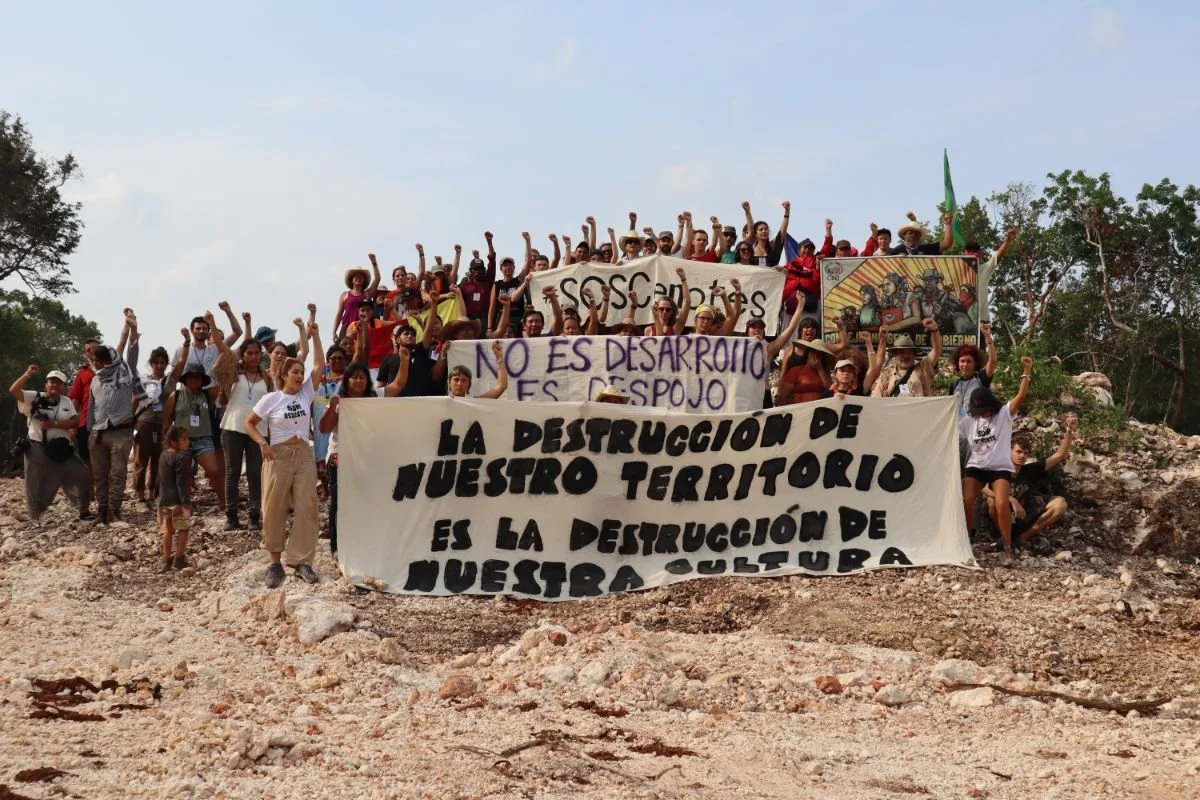The Other Side Of Tourism: The Environmental Disaster of Mexico’s Tren Maya
Photograph Source: LaCuna Magazine
The Tren Maya (Mayan Train) is a 966-mile intercity railway that connects the Yucatán Peninsula.
Construction began under President Andres Manuel Lopez Obrador in June 2020. The first section of the railway connecting Campeche Cancún opened in December 2023.
The official website states that the Mayan Train will promote socioeconomic development and sustainable tourism by linking the most important tourism areas within the Yucatan Peninsula, including sites that are inland and may be hard to reach.
Environmental and indigenous rights activists, including the Zapatistas, who live in the Chiapas region, have raised concerns about the train's construction.
Photograph Source: Tren Maya Website
Environmental Concerns
The Jungle
The Yucatan Peninsula is home to the second-largest tropical rainforest in Latin America. In “Section 5” alone, which connects Tulum and Playa del Carmen, the government has reported that 300,000 trees have been cut down. Environmentalists estimate that the real number is closer to 9 million trees.
Caves & Cenotes
The deterioration of the region’s underground cave system and cenotes will impact the region’s access to drinking water and the cave habitat for various animal species. According to TIME, the Yucatan Peninsula has the largest aquifer in the world and is the source of drinking water for roughly 5 million Mexicans. The train is being built directly atop the aquifer’s most fragile points. Biologists predict that this will lead to a water shortage problem.
Photograph Source: Jose Luis Gonzalez - Reuters
The Relocation of Indigenous Communities
Hundreds of families are being relocated from the path along the train's construction. In exchange for their land, families are being offered $800,000 MX pesos ($40K USD) and new homes. Most families anonymously report that they do not want to give up their homes, but they feel that they have no other choice and are afraid of negative repercussions if they refuse the government’s offer.
“There is no support from Indigenous people [for Maya Train]. If our ancestors could see what is being done in their name, they would die of sadness, knowing how they have been profaned, prostituted, and their culture and traditions used” - Indigenous community member of Jacinto Pat (TIME)


